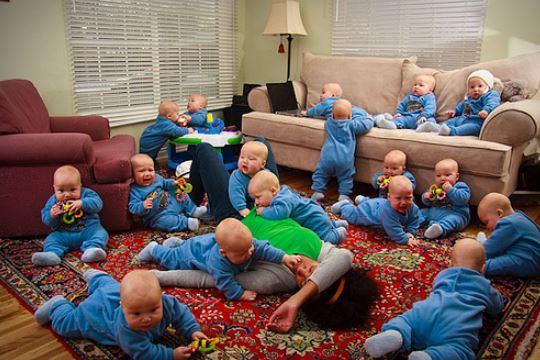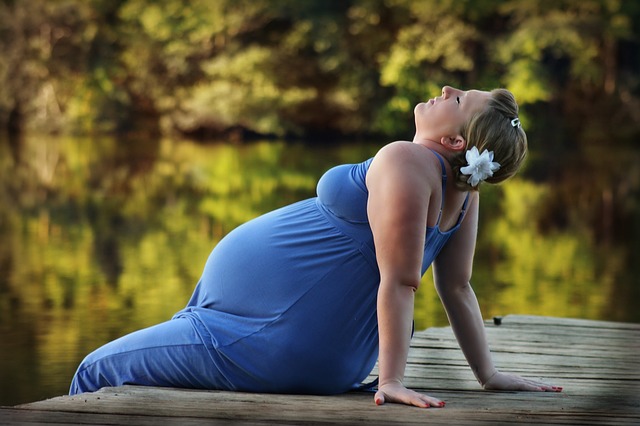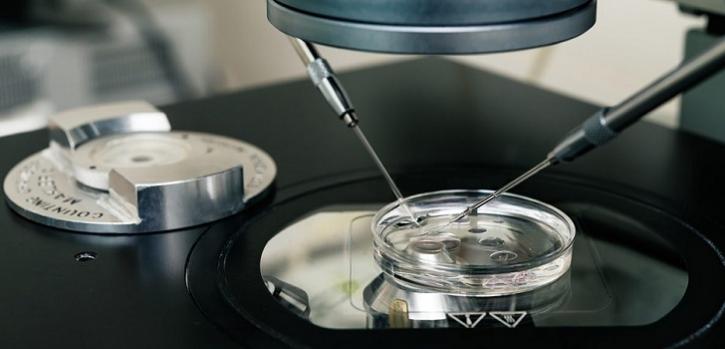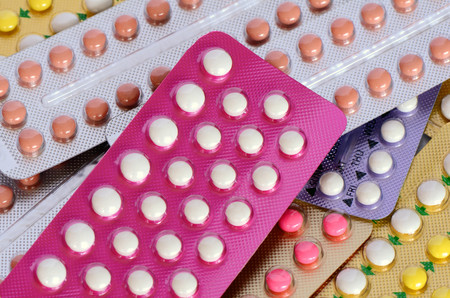Son muchos los mitos que se pueden escuchar cada día sobre la reproducción en nuestra vida diaria, por ello, queremos explicar qué tienen estos de cierto realmente en este «¿Verdadero o Falso?»:
1. Cuando tienes hijos por reproducción asistida se producen embarazos múltiples y partos prematuros.
 FALSO. Este mito se debe a que hace años era más común transferir a la mujer dos tres o más embriones, sin embargo, en la actualidad se tiende a la transferencia de un único embrión.
FALSO. Este mito se debe a que hace años era más común transferir a la mujer dos tres o más embriones, sin embargo, en la actualidad se tiende a la transferencia de un único embrión.
Un embarazo múltiple, por supuesto, conlleva riesgos más altos que los de un embarazo de un solo bebé, como la prematuridad, que justamente se da en el 50% de los embarazos gemelares y en el 90% de trillizos. Por este motivo, buscamos minimizar los riesgos de un embarazo múltiple, recomendando a los pacientes la transferencia de un único embrión.
2. Una mujer sana puede quedar embarazada naturalmente a los 40 años.
 VERDADERO. Por supuesto que es posible, sin embargo, aunque una mujer de 40 años se puede quedar embarazada de forma natural, la probabilidad es mucho menor que en una mujer que busque el embarazo en edades más tempranas.
VERDADERO. Por supuesto que es posible, sin embargo, aunque una mujer de 40 años se puede quedar embarazada de forma natural, la probabilidad es mucho menor que en una mujer que busque el embarazo en edades más tempranas.
A los 30 años de edad de la mujer, aproximadamente el 70% de sus óvulos son genéticamente normales, mientras que a los 40 solo el 30% son normales. Por ello, las probabilidades de embarazo en mujeres de 40 años son menores al 10%.
3. La esterilidad es mayormente femenina.
 FALSO. Las causas de la infertilidad se deben, en función de cada caso, a causas femeninas, masculinas o mixtas. En términos generales, según las estadísticas se estima que las proporciones son similares en ambos sexos (30 % en cada uno) y que existen también problemas vinculados directamente a la pareja, que son las causas mixtas. Además existe la llamada infertilidad idiopática, es decir que se desconoce su causa.
FALSO. Las causas de la infertilidad se deben, en función de cada caso, a causas femeninas, masculinas o mixtas. En términos generales, según las estadísticas se estima que las proporciones son similares en ambos sexos (30 % en cada uno) y que existen también problemas vinculados directamente a la pareja, que son las causas mixtas. Además existe la llamada infertilidad idiopática, es decir que se desconoce su causa.
4. Los tratamientos de reproducción asistida no funcionan en pacientes con menopausia.
 FALSO. Gracias a la ovodonación, una paciente menopáusica puede lograr un embarazo a partir de la inseminación de los óvulos de la donante por los espermatozoides de la pareja de la paciente receptora o de un donante, y luego su transferencia al útero materno.
FALSO. Gracias a la ovodonación, una paciente menopáusica puede lograr un embarazo a partir de la inseminación de los óvulos de la donante por los espermatozoides de la pareja de la paciente receptora o de un donante, y luego su transferencia al útero materno.
También existe el caso de que la propia paciente haya congelado sus óvulos años atrás y pueda tener un embarazo en su menopausia con sus propios óvulos.
5. El sexo durante el embarazo daña al feto.
 FALSO. Las relaciones sexuales en el embarazo no molestan ni perjudican al feto, todo lo contrario. Cuando tienes un orgasmo, las endorfinas que segrega tu cerebro sí llegan al bebé a través de la sangre, provocándole sensaciones placenteras: le activan y después le dejan relajado.
FALSO. Las relaciones sexuales en el embarazo no molestan ni perjudican al feto, todo lo contrario. Cuando tienes un orgasmo, las endorfinas que segrega tu cerebro sí llegan al bebé a través de la sangre, provocándole sensaciones placenteras: le activan y después le dejan relajado.
Por otra parte, cuando el embarazo está a término, las hormonas prostaglandinas del semen y las contracciones del orgasmo pueden desencadenar las contracciones del parto. Es una forma agradable de iniciar el nacimiento.
6. La pastilla anticonceptiva puede causar infertilidad.
 FALSO. La pastilla anticonceptiva puede enmascarar problemas hormonales, que existieran ya en la mujer antes de empezar a tomarlos, ya que el uso de anticonceptivos hormonales regulariza el ciclo dando la impresión de que todo está en orden. Por este motivo muchas ha existido este mito durante muchos años.
FALSO. La pastilla anticonceptiva puede enmascarar problemas hormonales, que existieran ya en la mujer antes de empezar a tomarlos, ya que el uso de anticonceptivos hormonales regulariza el ciclo dando la impresión de que todo está en orden. Por este motivo muchas ha existido este mito durante muchos años.
7. Existen formas de elegir el sexo de tu bebé.
 FALSO. De forma natural no es posible elegir el sexo de tu futuro bebé, a pesar de creencias tradicionales de que los alimentos, hábitos e incluso posturas sexuales pueden influir en el sexo de tu bebé.
FALSO. De forma natural no es posible elegir el sexo de tu futuro bebé, a pesar de creencias tradicionales de que los alimentos, hábitos e incluso posturas sexuales pueden influir en el sexo de tu bebé.
Los procedimientos que se llevan a cabo en las clínicas de reproducción asistida en España tienen como finalidad traer un niño al mundo, pero no “a la carta”, es decir que no se permite la elección del sexo, por ser ajeno a los códigos éticos y legales de nuestro país.
8. La vida fértil de los hombres dura más que la de las mujeres.
 VERDADERO. En las mujeres, la capacidad fértil comienza a descender significativamente a partir de los 35 años, mientras que en los varones se empieza a apreciar una disminución en este aspecto a partir de los 50 y repercutiendo, directamente a su salud general, tanto en los aspectos físicos como psíquicos.
VERDADERO. En las mujeres, la capacidad fértil comienza a descender significativamente a partir de los 35 años, mientras que en los varones se empieza a apreciar una disminución en este aspecto a partir de los 50 y repercutiendo, directamente a su salud general, tanto en los aspectos físicos como psíquicos.
Existen procesos emocionales, además de otros factores físicos, que pueden impedir la llegada del embarazo
9. La postura durante o tras el coito puede mejorar la fecundación.
 FALSO. Según los expertos lo único que favorece la gestación es que se dé una relación relajada que culmine con eyaculación en el fondo de la vagina, independientemente de la postura.
FALSO. Según los expertos lo único que favorece la gestación es que se dé una relación relajada que culmine con eyaculación en el fondo de la vagina, independientemente de la postura.
10. Una dieta sana ayuda a la fertilidad.
 VERDADERO. Una mala dieta, un alto nivel de estrés o malos hábitos en general, pueden provocar un desequilibrio hormonal que puede interferir no sólo en el ciclo menstrual de la mujer, sino también en la producción de espermatozoides del hombre. Además, las alteraciones del Índice de Masa Corporal (IMC) como el sobrepeso, la obesidad o el bajo peso han sido relacionadas con subfertilidad e infertilidad en mujeres.
VERDADERO. Una mala dieta, un alto nivel de estrés o malos hábitos en general, pueden provocar un desequilibrio hormonal que puede interferir no sólo en el ciclo menstrual de la mujer, sino también en la producción de espermatozoides del hombre. Además, las alteraciones del Índice de Masa Corporal (IMC) como el sobrepeso, la obesidad o el bajo peso han sido relacionadas con subfertilidad e infertilidad en mujeres.
En general alimentarse de manera responsable favorece la salud, por lo que si estás buscando quedarte embarazada tendrás que realizar algunos cambios en tus hábitos que pueden ayudarte.
C. Orjuela, Embrióloga.
Contacta con nuestra unidad de fertilidad.
Vithas Perpetuo Internacional. Plaza del Doctor Gómez Ulla 15, en Alicante.
Teléfono: 965230397 / +34 606437458
Email: info@phifertlity.com
Puedes seguir informado de nuestras publicaciones y noticias a través de nuestras redes sociales Facebook y Twitter.













